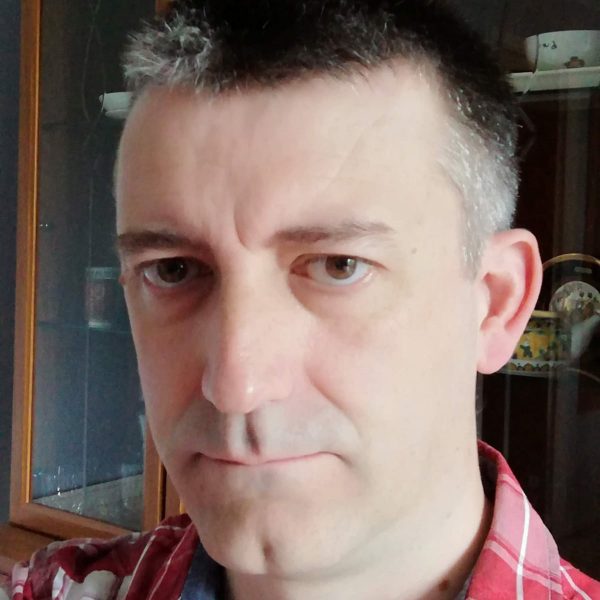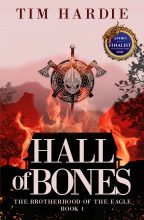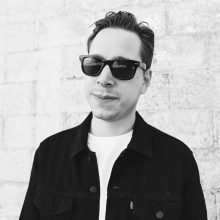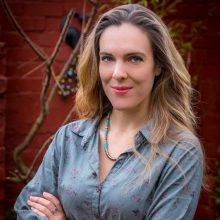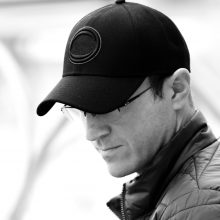What led you into writing?
Bridget Jones’s Diary by Helen Fielding. I really must write that blog post about how influential this book was for me and how it ultimately led to me becoming a writer. The short version is this brilliant novel inspired me to keep a diary when I was in my twenties and that was where the regular writing habit was born, more than 25 years ago.
Several years later, I decided I wanted to give creative writing a try. My first love when it comes to fiction is fantasy (with sci-fi being a close second), so writing a fantasy novel felt like the natural thing to do. I was in well over my head and it took me years to get to a point where I was writing work I’d consider to be of publishable quality. Whilst there were moments when it was a real struggle it was also a lot of fun and by the time I began writing Hall of Bones in 2011 the writing bug well and truly had me in its grip.
How does a typical day look?
Like most writers I have a day job and family life keeps me very busy, so I’ve had to adapt my routine over the years to ensure the writing gets done. No two days are the same but generally speaking I write or edit on Monday and Tuesday evenings and early on a Saturday morning. The evenings towards the latter end of the working week tend to be when I write my blog and newsletter, as well as doing things like this interview.
In what ways do your characters test your abilities?
There are well over 100 named characters in Hall of Bones, so that means having a system to keep track of them all, including their personality, appearance and allegiances. That system is still a work in progress and involves a lot of paper and a fair bit of muttering about how I wish I’d organised this in a different way.
I describe my work as dark fantasy but I also wanted it to have an epic feel, with lots of competing nations and plenty of politics. That meant I needed a big cast to give this world the necessary depth and complexity. I think the most interesting aspect of developing character is how they acquire a life and personality of their own. Put all that into the mix and you find they start plotting and surprising you with their actions. When your own writing takes an unexpected turn in this way, it really is one of the best feelings, although it then means more work to try and ensure the book remains on track and I’m still maintaining focus on the key elements of the plot.
What’s your setup?
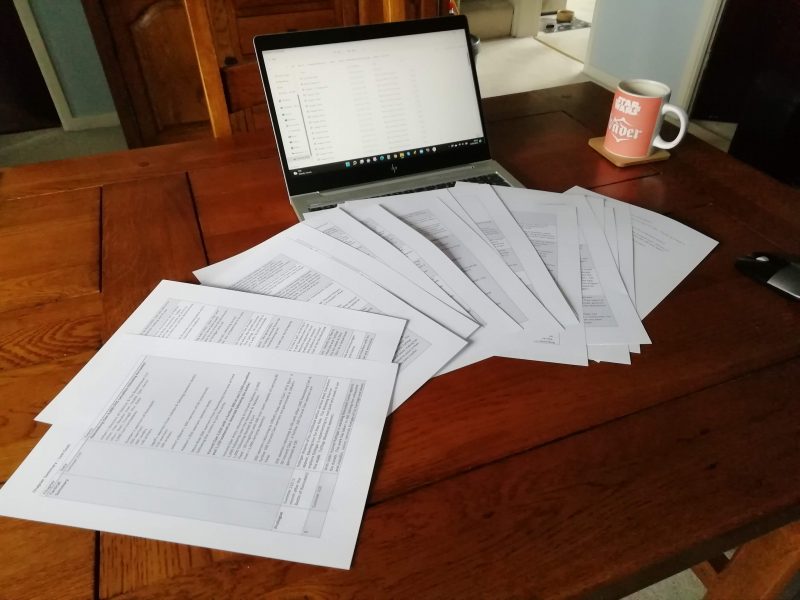
I tend to write at the dining room table, which is the hub of our family home. I have my own office in the house, which is where I do my day job. However, I spend long enough in there, so it’s good to physically move to a different location when doing something creative. I know some writers need complete silence or their favourite music to be able to concentrate and focus. In my case if it’s too quiet my mind wanders and I absolutely cannot write while listening to music. I find a little background noise is helpful and it means I’m a bit more connected to what’s going on around me at home.
I used to write in cafes fairly frequently for similar reasons, often snatching a few minutes here and there to get some work done whilst waiting for people. I might build that back into my routine as the world slowly starts to get back to some kind of normality.
What lasting effects have your favourite authors had on your writing and style?
That’s a hard question to answer, because different authors have been important to me at different stages of my life and writing career.
JRR Tolkien, Ursula Le Guin and Michael Moorcock were the main writers that made me fall in love with fantasy when I was younger. Another important person for me was Iain Banks in terms of his science fiction and regular fiction output. His writing remains incredibly vital, bursting with ideas, and I think this helped me understand what it was possible to do with the novel format. For example, the structure of Use of Weapons, with its clever reverse timeline moving in the opposite direction to the present-day narrative has stayed with me, more than 25 years on from first reading that novel.
I think Joe Abercrombie was probably the single most important writer in terms of finding my voice as an author. That was where the penny dropped for me about what people meant when they talked about someone having a unique author voice. The tone and feel of novels such as The Blade Itself was unlike anything I’d ever read before. At first I found myself trying to imitate his writing and, unsurprisingly, it didn’t really work. I began to understand I had to find my own writing style and author voice and that was when the ideas for Hall of Bones slowly began to come together.
What do you do for inspiration?
This question assumes I know where my ideas come from and, in all honesty, I really don’t. I tend to find that my subconscious is working on my stories in the background, even when I’m busy doing something else. Ideas will often pop into my head on long drives or walks, for example.
I think reading is important here. Genre fiction involves the repeated use of certain conventions and tropes and fantasy is no different. It’s always really interesting to see how other authors approach this and what they do to make their novel interesting and fresh, even if the ingredients are familiar to us all. I firmly believe that if you read good writers you will also improve as a writer, which is about more than just ideas. It’s about developing the skills in terms of prose, plot and character that give life to those ideas and turn them into a novel.
What repeating themes do you find yourself pulling into your stories?
This is another one I’m finding difficult to answer! As an author, you put a lot of yourself into the book you’re writing – your own hopes and fears, your life experiences, things you’ve learned about other people, history and world events – they all shape what comes out on the page. However, much of this is subconscious, or at least, it is for me. To be perfectly honest, when I began creative writing my only intention was to write a book designed to entertain people who enjoyed fantasy, adding a dash of realism and jeopardy to help raise the stakes.
It was actually my readers who identified the themes that were coming out during the course of the series. So, for example, the importance of family and the impact of loss were both things many people strongly identified with. They’re absolutely right – those themes run throughout The Brotherhood of the Eagle series. However, I never set out to consciously include these concepts as ‘building blocks’ for the series. Instead, they grew out of the story organically.
How do you wind down?
Five years ago my answer would have been writing. I still enjoy the process but these days I’m an independent author and that means I’m running a small business alongside my regular career. It’s fun but it’s also important to take time away from this to rest and relax.
Reading is something I’ve rediscovered a love for recently and I’m now reading far more books than in previous years. I enjoy walking, taking advantage of having the Derbyshire Peak District on my doorstep. I’m also a fairly sociable person and enjoy catching up with my friends, more often than not down the pub.
What sort of challenges do you regularly overcome while designing your world/setting?
I enjoy the world building side of writing fantasy and I think exploring those creations is one of the reasons so many readers are drawn to the genre. The physical setting and the associated politics are important as it’s the canvas on which you paint the story, with the context providing the initial impetus for the novel. My main issue is remembering what I’ve created. I take extensive notes for this reason, and refer to them often to ensure consistency as the story progresses. They really could do with being more organised – stuff is all over the place. Whilst I know where to find things there’s not a lot of logic to how it’s filed, so that’ll be one of my future projects to tidy all that stuff up.
What are you reading at the moment?
I’ve been lucky enough to receive an Advance Reader Copy of HL Tinsley’s gaslamp fantasy novel The Hand that Casts the Bone. I’m about a quarter of the way into that and I’m absolutely loving it so far. Tinsley is one of my favourite fantasy authors and her writing, whilst dark, is also really funny. She has a great turn of phrase. Highly recommended and currently available for pre-order!
What’s the most useful advice you could give to an aspiring author?
Make time to write and get those words down on the page. There really is no substitute for this part and it’s amazing how many people forget this. Next, you must learn to finish. It may sound obvious but you will never release a novel unless it is complete. My first novel was absolute rubbish but it taught me a valuable lesson in how to actually finish a novel-length manuscript. I never published that novel but it wasn’t wasted time – I learned a lot through that process.
Once you’ve finished, you must hone your work and edit, edit, edit. I think the temptation to release your book before it is the best possible version of what it can be is another mistake new authors can make. This is why reading is so important. You’ll absorb so much simply by reading other authors and seeing how they approach different aspects of novel writing.
There’s no absolute right and wrong way to do this, nor is there a guaranteed path to writing success. However, there’s also no substitute for finishing what you’ve started and putting out the best possible version of your work.
If you want to look at the subject of writing craft in more depth, I’d thoroughly recommend About Writing by Gareth L Powell and On Writing: A Memoir of the Craft by Stephen King. These books provide you with a great overview not only on writing craft but also how to approach life as an author in general.
Tell us about the book you’re promoting.
My Viking inspired series The Brotherhood of the Eagle begins with Hall of Bones.
Rothgar, the son of the Reavesburg Clan Chief, has been groomed for a role supporting his elder brother, Jorik, in leading their kingdom when their father’s time finally comes to an end. However, the rulers of their greatest rivals, the Vorund Clan, are in the grip of something older and far darker.
Everything is about to change …
The first book in The Brotherhood of the Eagle series, Hall of Bones begins a tale of epic fantasy, magic and intrigue, which is continued in the sequel, Sundered Souls.
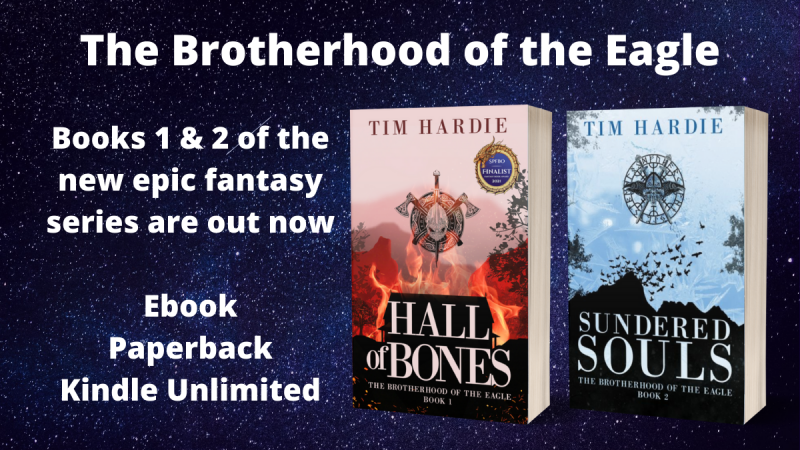
👋 Hi! I run Author Interviews
As a new writer I found myself itching to contribute to a thriving, creative community, so I made Author Interviews and I've met loads of wonderful people in the process. You can buy my debut fantasy RINGLANDER: THE PATH AND THE WAY from Amazon.
